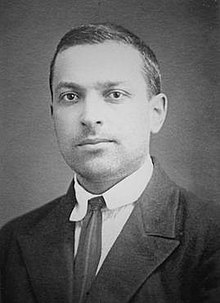
Lev Vygotsky
Academic
1896 – 1934
Who was Lev Vygotsky?
Lev Semyonovich Vygotsky was a Soviet Belarusian psychologist, the founder of a theory of human cultural and bio-social development commonly referred to as cultural-historical psychology, and leader of the Vygotsky Circle.
Vygotsky's main work was in developmental psychology, and he proposed a theory of the development of higher cognitive functions in children that saw reasoning as emerging through practical activity in a social environment. During the earlier period of his career he argued that the development of reasoning was mediated by signs and symbols, and therefore contingent on cultural practices and language as well as on universal cognitive processes.
Vygotsky also posited a concept of the Zone of Proximal Development, often understood to refer to the way in which the acquisition of new knowledge is dependent on previous learning, as well as the availability of instruction.
During his lifetime Vygotsky's theories were controversial within the Soviet Union.
We need you!
Help us build the largest biographies collection on the web!
- Born
- Nov 17, 1896
Orsha - Also known as
- Lev Semyonovich Vygotsky
- L. Vygotskiĭ
- Parents
- Siblings
- Spouses
- Roza Noevna Smekhova
(1924 - )
- Roza Noevna Smekhova
- Children
- Ethnicity
- Russian
- Nationality
- Soviet Union
- Russian Empire
- Profession
- Education
- Moscow State University
Law
(1913 - 1917) - Shanyavskii People’s University
- Shaniavskii Open University
- Moscow State University
- Lived in
- Moscow
- Died
- Jun 11, 1934
Moscow
Submitted
on July 23, 2013
Citation
Use the citation below to add to a bibliography:
Style:MLAChicagoAPA
"Lev Vygotsky." Biographies.net. STANDS4 LLC, 2024. Web. 27 Apr. 2024. <https://www.biographies.net/people/en/lev_vygotsky>.

Discuss this Lev Vygotsky biography with the community:
Report Comment
We're doing our best to make sure our content is useful, accurate and safe.
If by any chance you spot an inappropriate comment while navigating through our website please use this form to let us know, and we'll take care of it shortly.
Attachment
You need to be logged in to favorite.
Log In